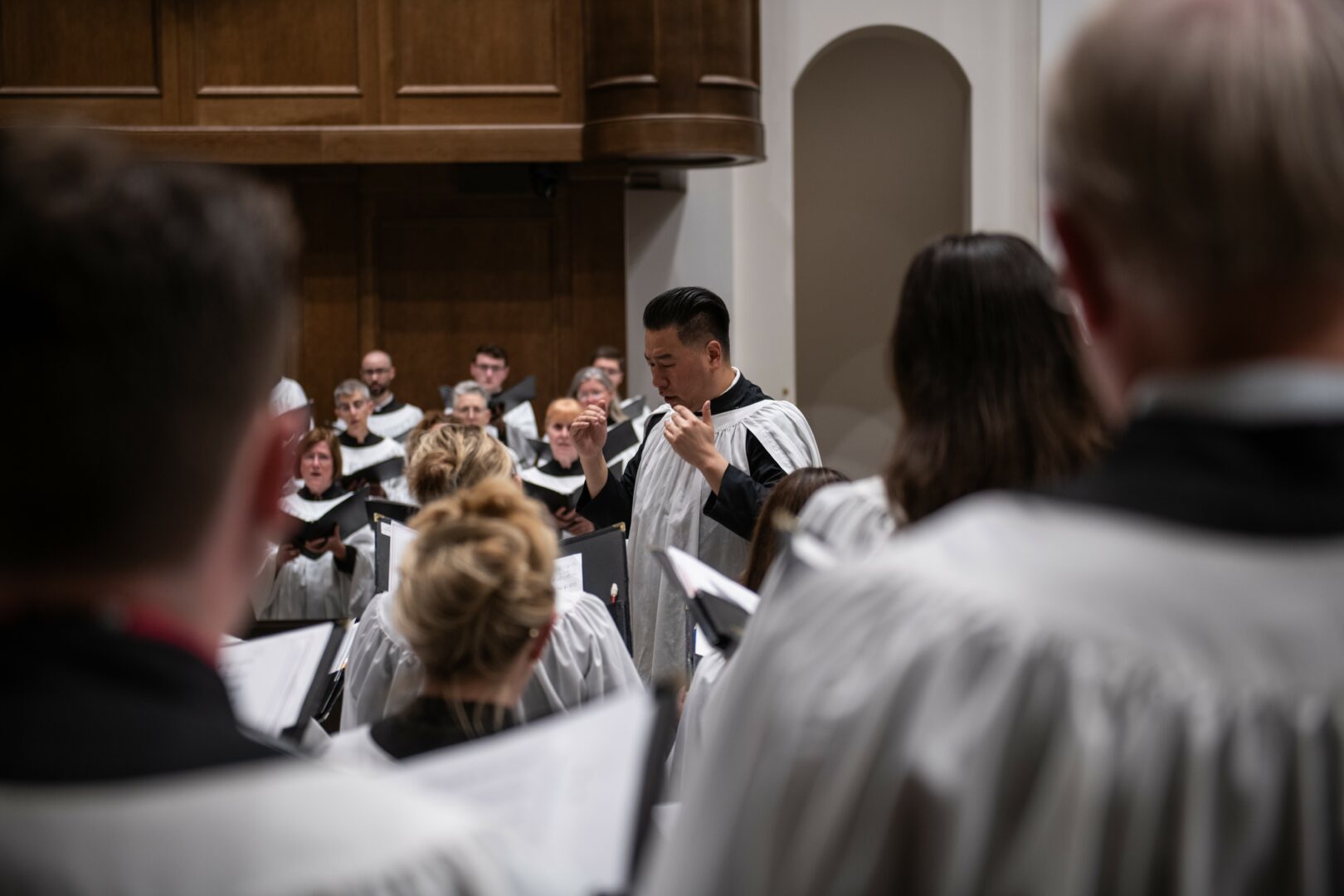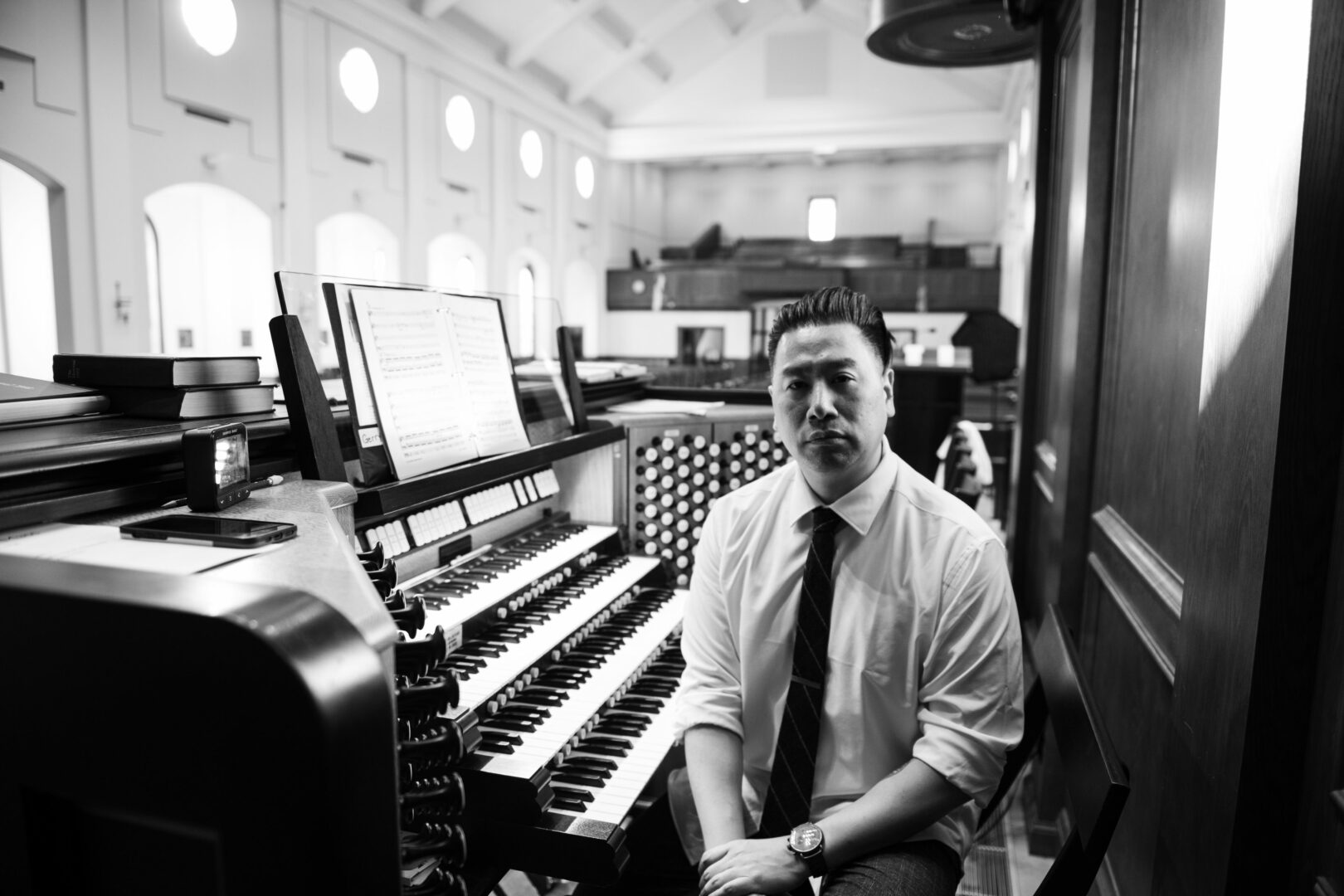We recently connected with Woosug Kang and have shared our conversation below.
Hi Woosug, thank you so much for opening up with us about some important, but sometimes personal topics. One that really matters to us is overcoming Imposter Syndrome because we’ve seen how so many people are held back in life because of this and so we’d really appreciate hearing about how you overcame Imposter Syndrome.
My imposter syndrome has two facets: one with my skills as a musician, but also as a person who grew up in three different continents.
My family moved from Seoul, South Korea when I was 14 years old to New Zealand, where I grew up and later, I came to the USA for my grad schools, and I ended up taking a root here. My imposter syndrome involved being a teenager acting like you understand everything everyone is saying in English while you are trying to find your place. At my profession, my internship as an organ scholar (when I was 19 years old) at the Anglican Cathedral provided quite a challenge. Not only my English wasn’t quite sufficient, but it was in fast-paced, highly disciplined environment where cultural understanding of liturgy and practices were expected, and at that point, I wasn’t even comfortable using a knife and a fork at a dinner table, yet alone sipping sherries and port making small talks in social events that was a part of my job. I had incredible mentors who taught me so much through those times, however the imposter syndrome, which is also very common in any musical field, had a powerful grasp on me. No matter how many hours I practiced, how many scholarships, positions I won, hearing praises felt so unnatural, often at times embarrassing. An Asian immigrant from two different continents working in a very Anglo based tradition.
I do not know if one overcomes imposter syndrome completely. Like many challenges it lingers, always has a spot somewhere to jump out. It was not until many years later, I noticed my sense of competitiveness was a part of me trying to overcome the sensation of imposter syndrome. Achievements alone really didn’t help me overcome the sense of imposter syndrome..
I noticed when I found a sense of gratitude through my faith and a great therapist, I felt the sensation of unburdening the imposter syndrome. Practicing gratitude on the fact I get to be in my profession, doing what I love doing, day and day out despite the feeling of unworthiness, is a great gift. The practice of reminding myself to be grateful, has eased the tension and helped me to manage the ever-lurking shadow that is imposter syndrome.

Great, so let’s take a few minutes and cover your story. What should folks know about you and what you do?
I hold a position as a Director of Music Ministries at an Episcopal parish, and my main work is conducting choirs, and playing the pipe organ in a traditional Anglican/Episcopal worship services. I also concertize on the organ as well as handling logistics of our ministries including a concert series in every aspect from locating/contracting artists, raising funds, and scheduling.
All my degrees from undergrad to grad schools are music degrees in organ performance, but I was trained in choral conducting choirs, voice, improvise, harpsichord, piano. Outside of music, I had to learn to be in a role of a minister in a sense with people I work with.
I have founded a non-profit concert series in CT that is still going on after I have left more a decade ago. I have been involved in After School Music Program through my previous church position where I worked with under-privileged children through music and around 50 volunteers. I am a musician in a sacred music field that involves many other needs of running a ministry, and have musicians and admins that report to me as well.
As a musician my favorite moment is when I rehearse with singers (ages from 3rd grader all the way to 70+ years old). We are involved in so many aspects of worship and musical activities in our community, and the concert series under my care is called In Excelsis Series.
Looking back, what do you think were the three qualities, skills, or areas of knowledge that were most impactful in your journey? What advice do you have for folks who are early in their journey in terms of how they can best develop or improve on these?
Willingness to Listen. Especially things that are difficult to hear.
Ability to consistently work on your skillset for your field. Consistency can be so difficult, but such an asset.
Taking the time to reflect before making big decision.
Looking back over the past 12 months or so, what do you think has been your biggest area of improvement or growth?
Emotional growth is the biggest area, and it has been humbling more than anything. It was wonderful and yet rather scary to see how much emotional growths I had room for. It was surprising to see how often I would let myself retreat back into what I felt comfortable rather than addressing the hard facts about myself.
As a musician, we all like to think we are continuing our growths journey, but it usually focuses on our skillset in our profession and our experiences as a professional, not much on our self as a person. Being challenged to ask big questions, and addressing issues I used to make excuses for, I am relieved for the journey.
Contact Info:
- Website: https://www.woosugkang.com
Image Credits
Cate Jones photography (first picture).
so if you or someone you know deserves recognition please let us know here.




